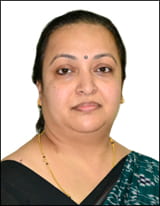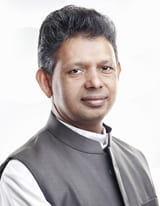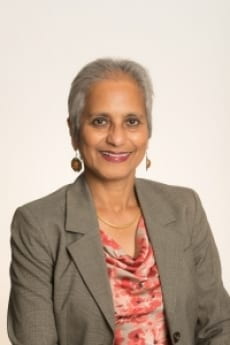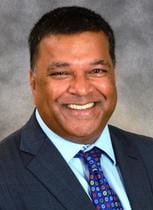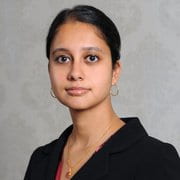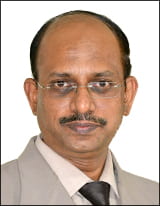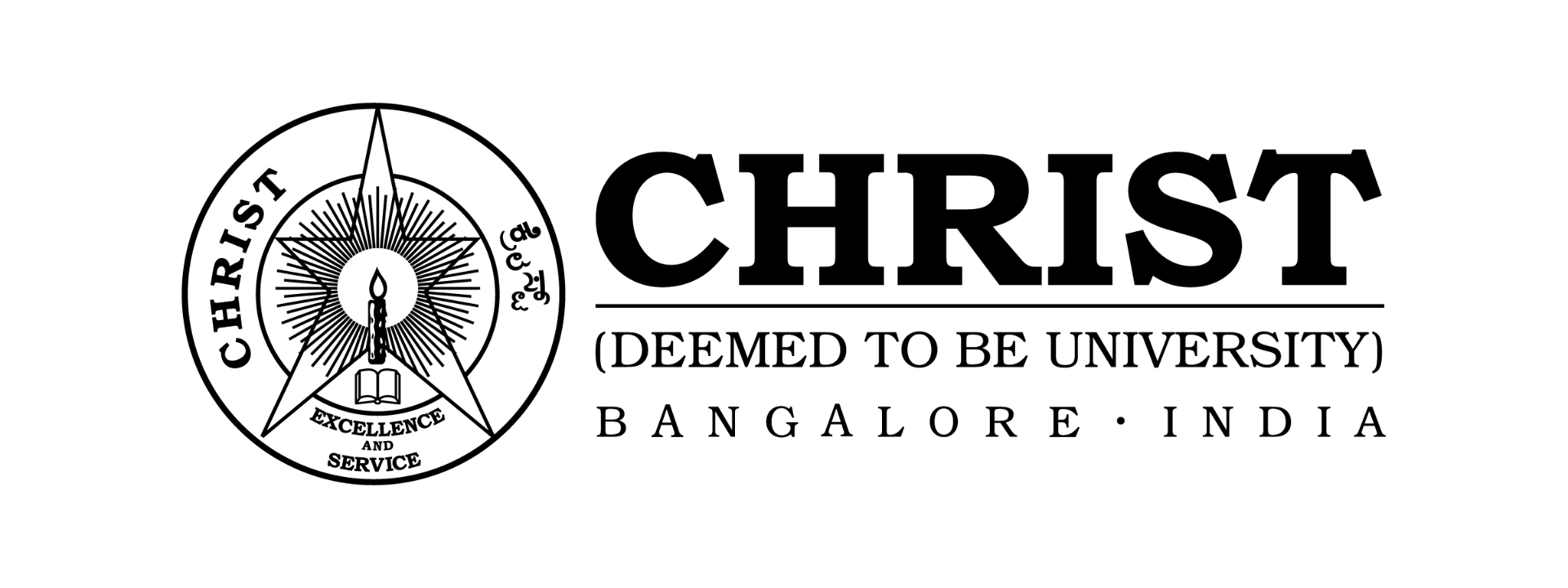Asia Report #58 | October 24, 2022
A high-tension visit by U.S. Speaker of the House Nancy Pelosi to Taiwan in early August 2022 led to the People’s Liberation Army Navy holding exercises near Taiwan and firing live missiles near the island. Chinese military escalation and stern diplomatic warnings to the U.S. came in the midst of final deliberations of the Creating Helpful Incentives to Produce Semiconductors and Science Act of 2022 (CHIPS act) in Washington. A week after Speaker Pelosi’s visit, President Biden signed the measure into law, providing over $50 billion to help develop and produce semiconductors while encouraging U.S. companies to cut China out of their semiconductor supply chains.
To explore these issues and how heightened tensions are likely to affect Taiwan and its economy and security, the Sigur Center for Asian Studies hosted a two panel Taiwan’s New Security Challenges: Economic Security and Military Security. The first panel focused on Economic Security: Supply Chain Resilience, Cybersecurity & US-Taiwan Ties. This Asia Report covers the deliberations on these topics, to be followed by another report on the military equation. The video of the conference may be found here.
The featured speakers on were Rupert Hammond-Chambers, President of the US-Taiwan Business Council since 2000, Fiona Cunningham, Assistant Professor of Political Science at the University of Pennsylvania and Faculty Fellow at Perry World House, and Emily Weinstein, Research Fellow at Georgetown’s Center for Security and Emerging Technology and Nonresident Fellow at the Atlantic Council’s Global China Hub and the National Bureau of Asian Research. The panel was moderated by the Director of the Sigur Center for Asian Studies at George Washington University, Professor Gregg Brazinsky.
Supply Chain Resilience
Rupert Hammond-Chambers started the panel by introducing the US-Taiwan Business Council he presides, noting that it represents mostly tech companies, though its defense portfolio often captures the most attention. This was a theme throughout the conference as all speakers pointed out that economic considerations are often eclipsed by the needs of national security. Hammond-Chambers described Donald Trump’s presidential inauguration as a turning point in the US-China supply chain relationship: the Trump administration’s shift from its predecessors’ accommodationist attitude to assessing more realistically how to address the ongoing challenge from China. This position has now become bipartisan as both sides of the aisle view China as a challenge, especially in view of its aggressive reaction to Speaker Pelosi’s visit.
This shift in U.S. policy had a ripple effect in the supply chain. While large multinational companies were initially taken aback, their experience in engaging governments and lobbying enabled them to weigh in on the process of reassessment and readjustment of the China-U.S. economic relationship. However, this was not the case for their Taiwanese supply chain partners, who lack such experience and had more difficulty in assessing the situation.
Less than two years later, COVID rattled the supply chain as demand of certain products spiked while there was a dearth of availability of other products, especially semiconductor chips. This increased pressure on the supply chain as it tried to adjust by attempting to diversify partners rather than relying solely on China. However, considering the way that the global supply chain is structured around China, radical change is unlikely to happen quickly, especially for companies that have invested heavily in production in China and that cannot simply displace entire factories overnight. Long term however, Hammond-Chambers observed a dramatic shift in companies no longer investing capital in China to build production capacity. Instead, he noted a historically high FDI flow to Taiwan as a function of this pressure in the supply chain.
These limitations, conjoined with a general effort to spread out of the supply chain have led to more investments being made in Vietnam, India, Indonesia, and Eastern Europe. Neo-industrialist policies in the U.S. have also contributed to the expansion of manufacturing capabilities within the U.S. Hammond-Chambers mentioned that over the next 10 years the footprint of Taiwanese company Taiwan Semiconductor Manufacturing Company Limited (TSMC) in Arizona will grow, though it will probably only manufacture commodity products and not its most advanced chips. The overall effect of these multiple trends is to push investment away from China, and while Taiwan has several issues working against it as a place for more investment, in addition to a wish to mitigate risks by not having too many economic interests embedded in one part of the world, Taiwan will remain a critical component of the supply chain and is still getting a large share of capital flow for semiconductors.
Cybersecurity Challenges and Vulnerabilities
For Fiona Cunningham, Taiwan is a “highly networked, technologically sophisticated open society”, but it is dependent on digital technology, making it vulnerable to malicious cyber activity. As the PRC’s goal is to absorb Taiwan without destroying it, the cyber domain has some novel advantages to enable the PRC to do so. Cunningham summed up the PRC’s strategy of reunification to three main endeavors: exerting leverage, presenting a united front, and persuasion. The PRC’s reunification strategy is more than just a military strategy, and as such, it uses cyber tools in ways other than military as well. Cunningham then highlighted ways that China exerts leverage on Taiwan through the use of cyber tools.
First, by investing in cyber capabilities, the PLA bolstered its capabilities to coerce Taiwan. The PLA originally invested in offensive cyber operations after the bombing of the Chinese embassy in Belgrade in 1999. Their goal was to make it too risky for the U.S. to intervene in a conflict with Taiwan, which makes Taiwan more vulnerable and thus less likely to take steps towards its independence. Second, the PRC could also attack Taiwan’s critical infrastructure directly using these cyber capabilities it has developed in the last twenty years, giving leverage to the PRC. PLA cyber operators have already targeted Taipei’s city government networks as well as transport and logistics networks, actively reminding of the potential of full-scale offensives. Third, PLA operational plans in the event of a conventional invasion of Taiwan include gaining information dominance, in addition to air and sea superiority. Cyber plays an important role in that effort. While these cyber capabilities are often thought of as being targeted at the U.S. Navy, they can also affect the Taiwanese military, again exerting pressure. Fourth, in addition to these uses of cyber in a conflict, the PRC can execute a strategic blockade campaign, in which information blockades play a role as cyber tools could help seal off Taiwan. Fifth, cyber espionage enhances effectiveness of all military operations as they can lead the PLA to gaining information about Taiwan’s defenses and intentions.
Echoing Hammond-Chamber’s point about military concerns taking over cyber, Cunningham noted that cyber issues are multidimensional. For instance, as a result of its diplomatic isolation, Taiwan is often excluded from the international organizations shaping the rules of cyber governance internationally, removing its ability to shape regulations that affect it.
Cunningham also remarked that the PRC did not use cyber in its demonstration of force following Speaker Pelosi’s visit to Taiwan. Some DDS attacks on Taiwanese government websites were observed, but they may have come from individual netizens or unofficial groups rather than the PLA given their small scale and unimpressive nature. This entails that either China has never conducted cyber operations, unlike most powers with cyber capacity, or it is facing the challenge of figuring out how to use cyber to signal effectively in crises. Outside of crises, Cunningham suggested that Taiwanese semiconductor companies are not at a particular risk from China as sabotage would be counterproductive given China’s reliance on importing Taiwanese chips.
U.S.-China Tech Competition and Implications for Taiwan
Emily Weinstein rounded out the panel by focusing on export controls, which are key in the context of decoupling. To support her presentation, Weinstein referred to a historical case study, the Loral-Hughes incident, which occurred in the context of US-China normalization of relations post-1979. Talks about collaboration in space emerged from this normalization, in particular in the context of satellites. Despite the events of Tiananmen and a degradation of U.S.-China relations, collaboration in satellite technology continued until the mid-1990s.
The Loral-Hughes incident led to a U.S. Congressional Committee which commissioned an in-depth study of the issue of tech transfer related to China and drove a unilateral decision from Congress to move satellites from dual-use to be deemed a munition, making the export process of satellite and rocket parts much more difficult. The geographic concentration of satellite makers in the U.S. meant this change of policy affected the sector worldwide. Despite these delaying efforts, China has still emerged as a leading player in space because key components and expertise can come from outside the U.S. Worse, according to Weinstein, this unilateral U.S policy inhibited U.S. progress as it isolated the U.S. satellite industry from partners and markets and reduced the U.S.’ previously dominant share of the market. Indeed, European companies that emerged with the development of the European Space Agency produced ITAR (International Traffic in Arms Regulations) free satellites, with no limitations on exports, and those were easier to purchase or incorporate into satellites for non-U.S. based companies. As such, Weinstein sees export controls as a tool that can slow the development of a certain product or technology, but not necessarily stop it.
Weinstein then shifted to discussing these concepts in the context of artificial intelligence (AI), with a focus on data, algorithms, and computing. Her assessment is that when applied to AI, export control is impossible as data is ubiquitous and readily accessible. This is the case because algorithms and software are often developed open source, which makes efforts to control them ineffective. On the hardware side, Weinstein notes that export controls can be used for advanced chips (a specific subset can be controlled), and that will have some effect, but overall, it cannot stop China from innovating.
With the Russian invasion of Ukraine in February 2022, there have been conversations about how sanctions and export controls to Russia could work against China. For Weinstein, multilateral export control over Russia could be built into something more durable and be applied to China, but more importantly, they would have to be modernized as current export control agreements were set up for the Cold War to limit the proliferation of weapons of mass destruction, not technologies. In addition, they are not set up to use export controls for end users, they can only control specific types of technology. Unilateral regimes do have a place, but are often ineffective and sometimes counterproductive, as seen in the satellite example, which is why Weinstein recommends constructing a multilateral regime. To have an impact, such an arrangement must be set up earlier than later, to help as a deterrent, as well as a capacity limiting tool in the event of an invasion.
By Gabriel Savagner, Research Assistant, Rising Powers Initiative and M.A. Candidate, Elliott School of International Affairs, The George Washington University.


















































